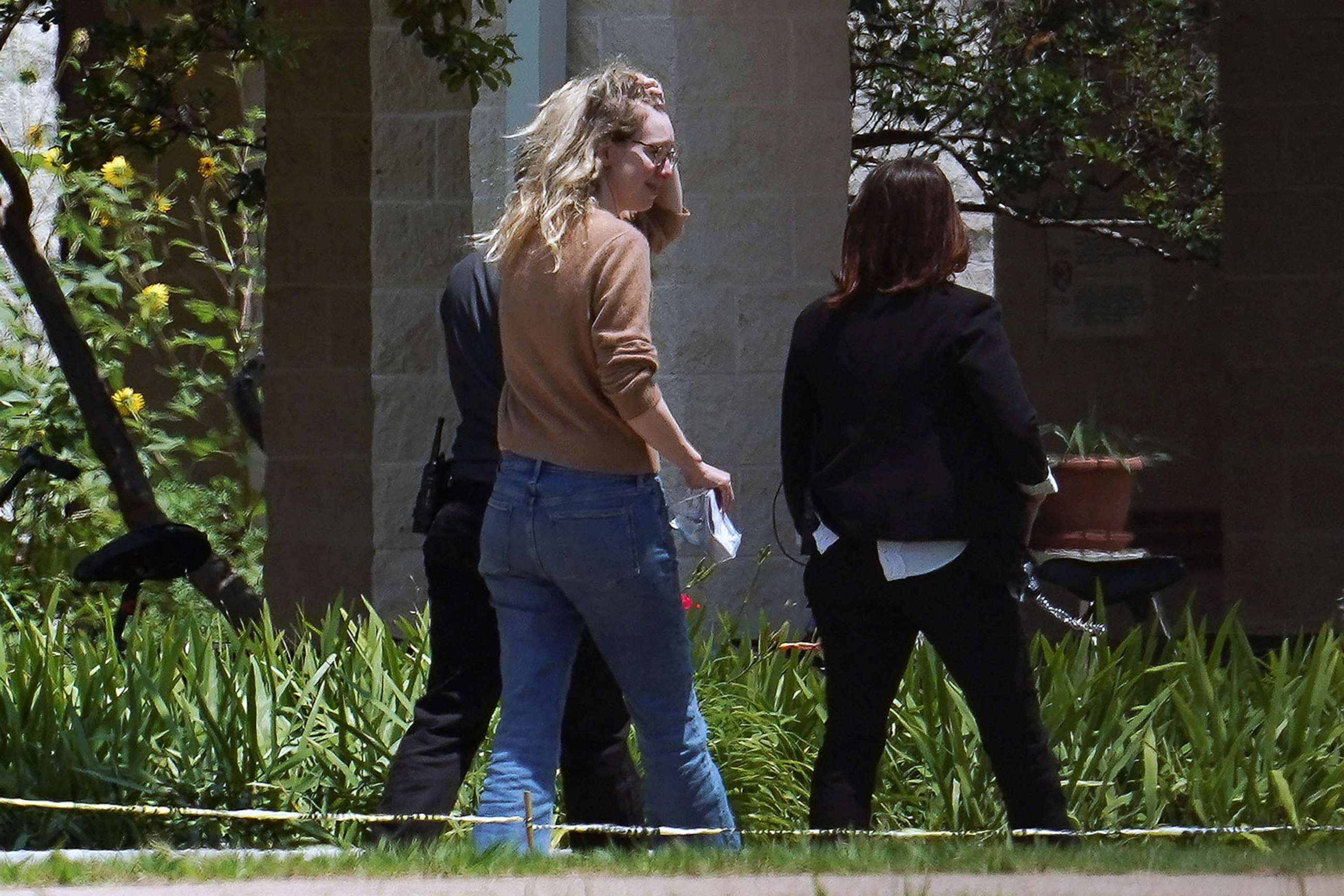Former inmate at Elizabeth Holmes' prison describes what she'll see behind bars
The disgraced tech founder may have an initial job washing dishes.
Elizabeth Holmes, the convicted fraudster and founder of failed blood-testing company Theranos, on Tuesday began serving an 11-year sentence at the Federal Prison Camp in Bryan, Texas.
Holmes, according to a source, self-surrendered with "little fanfare." She was accompanied by her parents and husband Billy Evans.
She isn't the only famous face at Bryan: Former "Real Housewives of Salt Lake City" cast member Jen Shah entered the minimum-security facility in February after being sentenced to six and a half years for what prosecutors said was a telemarketing scheme targeting the old and vulnerable.
Holmes might have a humbling first job at the prison, according to a former inmate at the facility.
"That is Bryan's rule," said Lynn Espejo, who was convicted of defrauding her employer. "The policy is that every new person arriving gets cleared by medical and they have to go work in the kitchen for 90 days."
That's not a guarantee, though. Holmes could get a job elsewhere, such as the prison's education department, and be excused from kitchen work, said Espejo, who now works as a prison reform advocate and was granted compassionate release in 2021 because of COVID-19.
There is also a program in which inmates train service dogs at the facility, or Holmes could teach classes to other inmates, Espejo said.
"Who's to say Elizabeth Holmes will be in the kitchen tonight," Espejo said. "By policy, she's supposed to. But who knows if that's going to happen?"

Holmes, Espejo told ABC News, will be dressed in a khaki jumpsuit, which is recycled from inmate to inmate, and will be sleeping on what she likened to a "kindergarten mat."
"That's basically what it looks like, those kind they fold out at school and take naps on," Espejo said. "It's not a good bedding. And you really feel like you're laying directly on steel."
There are four units at the prison camp facility, which is among the lowest level security facilities in the federal system.
But Espejo said it isn't "camp cupcake," as some describe it. She recalled "dilapidated" conditions when she served time there, including moldy showers and little hot water in the winter.
A source said that every Friday, Saturday and Sunday night, movies are shown in common areas.
Holmes won't be locked behind bars in her cell. Rather she'll live in a room with two bunks and folding chairs in the middle.
Espejo said the hardest adjustment is being alone.
"I think it'll be a cultural shock to her. I know it was for me when I first got there," she said. "Missing your family is gut wrenching."
ABC News' Gina Sunseri contributed to this report.




